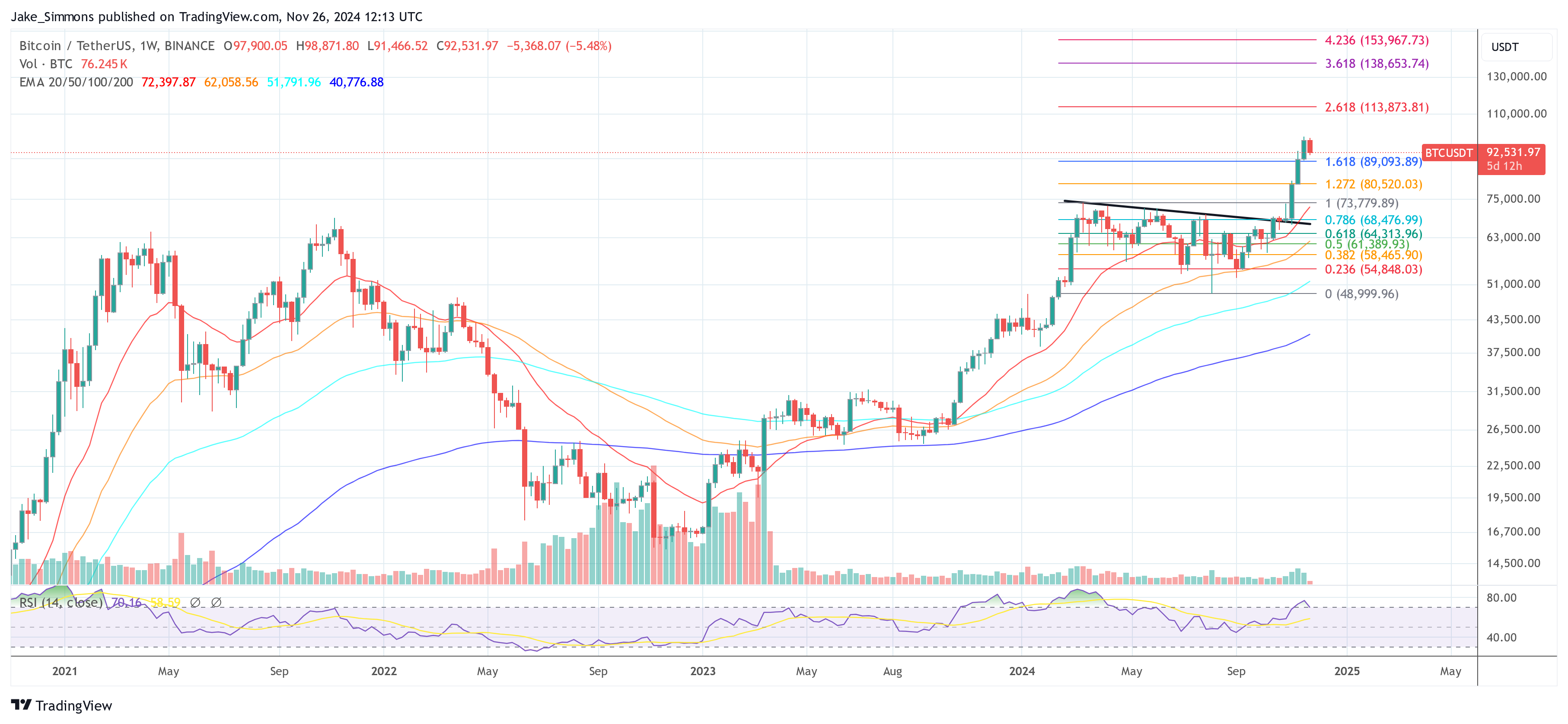For an industry that rarely gets mainstream political support, Bitcoin recently received a massive endorsement after Democratic Presidential candidate Robert F. Kennedy spoke out in support of the cryptocurrency. According to RFK, arguments against adopting Bitcoin due to perceived environmental impact are merely a cover to curtail financial freedom.
Responding to the tweet by Feldman, RFK stated that “… environmental arguments should be used as a smokescreen to curtail freedom to transact.” RFK, who is a holder of BTC, has previously disclosed his intention to return the USD to hard currency backed with assets such as BTC.
One of the challenges of Bitcoin adoption is the perceived threat it poses to the environment. According to anti-crypto campaigners and politicians, bitcoin mining is harmful due to its high energy requirement.
This argument is a prominent position within the political and environmental protection ecosystem, so much so that campaigners like Greenpeace have accused BTC of destroying the planet. However, while Bitcoin mining is energy-intensive, it utilizes more renewable energy presently than ever before.
This position was further reiterated by Daniel Feldman, director of Sangha Systems. According to him, there exists a “symbiotic relationship” between Bitcoin and renewable energy.
Agreeing with the popular Democratic candidate, Feldman noted that bitcoin mining offers a solution to boost the electric grid and limit dependence on fossil fuels. He, however, noted that “most renewable energy sites are not profitable without government subsidies.”

Subsidies in the form of tax credits generate market distortions and the flow of these credits is managed by banks who are often bailed out by governments during financial crises, the very banks that Bitcoin seeks to free people from.
According to Feldman, renewable energy sites experience curtailment and congestion challenges due to the absence of global markets to sell to during demand troughs. BTC solves this challenge by providing a universal market for electricity that will boost investments in renewable energy projects.
Renewable energy arguments are popular within the green energy industry as they continually seek the flexibility offered by crypto mining operations. However, they are still faced with serious opposition from the media and the political establishment, who believe BTC mining will boil the planet.
According to data obtained from Cambridge University, it is estimated that global BTC mining activities are currently pegged at 137 TW/h (terawatt hours) per year.
This figure surpasses the energy usage of countries such as Ukraine, which utilizes 134 TW/h. In contrast, the electricity distribution and transmission losses in the US are sufficient to power BTC 1.5 times with 206 TW/h per year.
Responding to the tweet by Feldman, RFK stated that “… environmental arguments should be used as a smokescreen to curtail freedom to transact.” RFK, who is a holder of BTC, has previously disclosed his intention to return the USD to hard currency backed with assets such as BTC.
Bitcoin And The Environment
One of the challenges of Bitcoin adoption is the perceived threat it poses to the environment. According to anti-crypto campaigners and politicians, bitcoin mining is harmful due to its high energy requirement.
This argument is a prominent position within the political and environmental protection ecosystem, so much so that campaigners like Greenpeace have accused BTC of destroying the planet. However, while Bitcoin mining is energy-intensive, it utilizes more renewable energy presently than ever before.
This position was further reiterated by Daniel Feldman, director of Sangha Systems. According to him, there exists a “symbiotic relationship” between Bitcoin and renewable energy.
Agreeing with the popular Democratic candidate, Feldman noted that bitcoin mining offers a solution to boost the electric grid and limit dependence on fossil fuels. He, however, noted that “most renewable energy sites are not profitable without government subsidies.”
Subsidies in the form of tax credits generate market distortions and the flow of these credits is managed by banks who are often bailed out by governments during financial crises, the very banks that Bitcoin seeks to free people from.
According to Feldman, renewable energy sites experience curtailment and congestion challenges due to the absence of global markets to sell to during demand troughs. BTC solves this challenge by providing a universal market for electricity that will boost investments in renewable energy projects.
A Look Into BTC Energy Usage
Renewable energy arguments are popular within the green energy industry as they continually seek the flexibility offered by crypto mining operations. However, they are still faced with serious opposition from the media and the political establishment, who believe BTC mining will boil the planet.
According to data obtained from Cambridge University, it is estimated that global BTC mining activities are currently pegged at 137 TW/h (terawatt hours) per year.
This figure surpasses the energy usage of countries such as Ukraine, which utilizes 134 TW/h. In contrast, the electricity distribution and transmission losses in the US are sufficient to power BTC 1.5 times with 206 TW/h per year.






